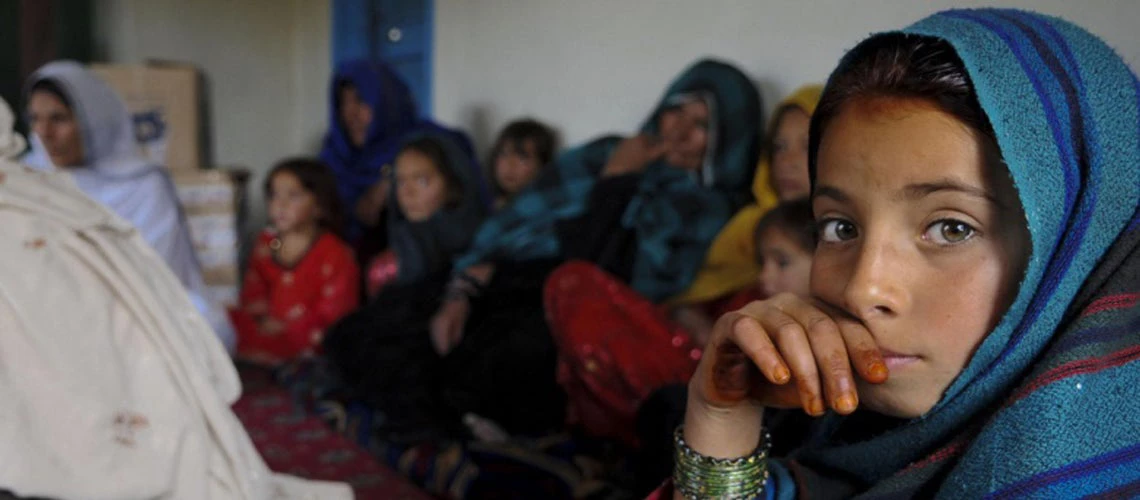 Afghanistan and poverty – Photo credit: World Bank
Afghanistan and poverty – Photo credit: World Bank
The Bank's 2011 World Development Report on Conflict, Security and Development reflected a consensus on how the international community could support peace-building in war-torn states. This consensus is now unravelling, following major state-building failures in Iraq, Afghanistan, Ethiopia, South Sudan, Sri Lanka, and Myanmar. At the same time, violence and instability are on the rise, amid intensified rivalries between global and regional powers. By 2030, nearly 60 percent of the world’s poor will be living in unstable, violent places. The need to help countries manage and recover from conflict is on the rise amid falling aid budgets and growing uncertainty about appropriate remedies.
What can be done to reinvigorate international support efforts? In our view, we should start by examining the past - what was done well, what failed, and why.
The conceptual model - and its shortcomings
Post-conflict stabilization efforts have been driven by a specific premise: that the path to achieving sustainable peace depended on accountable government and a functioning market economy. Donors and aid agencies promoted a technical pathway: reforming institutions, laws, policies and regulations; safeguarding property rights; improving taxes and public spending; and strengthening accountability between the state and its citizens. If the state functioned effectively, it was assumed, then the private sector would flourish, while improved services and better economic opportunities would strengthen state legitimacy and bolster internal stability.
Despite vast donor investment in pursuit of this approach, results have often been disappointing. While progress was sometimes achieved in providing public services and infrastructure sometimes improved, there are few examples where success can be claimed against broader state-building goals. Effective, accountable governments and vibrant economies have been slow to emerge amid governance systems characterized by patronage, corruption, predation, and continuing violence.
What went wrong
International and domestic political prerogatives have constrained state-building progress.
At the international level, donors’ and neighboring countries’ pursuit of security or economic objectives has often torpedoed state-building goals. In Afghanistan, for example, the international community channelled billions of dollars to warlords to enlist them against the Taliban. These warlords used their privileged access to security and civilian aid resources to entrench their power and influence, fueling perceptions of widespread corruption and undermining the legitimacy of state. Development agencies have also found themselves acquiescing to political pressures to maintain or expand engagements even when prospects of success were clearly limited (as in Mali, or South Sudan), or when such engagements were rendered largely irrelevant by broader political or security developments (West Bank and Gaza, Yemen). Development agency staff have sometimes been reluctant to point to contradictions between powerful international actors’ development, security, and geopolitical goals.
In countries facing or recovering from war, power often remains fragmented between political elites who have little interest in enforcing or complying with policies that support contestability, competition, and efficiency. In Somalia in 2012, or in Nepal in 2006, there was no impersonal state, or “rule of law”, under which objective frameworks of regulations could be enforced. Insisting on the effective implementation of formal measures can be actively destabilizing if they disrupt the opportunities for extraction and patronage that fragile political bargains depend upon. In the face of concerted elite opposition, state-building reforms will at best be unevenly implemented and will often have little practical impact.
How can state-building be done better?
A revised approach to development in war-torn countries is surely overdue. More pragmatic, modest, and locally-grounded approaches that work with limited resources are needed. Post-conflict interventions should focus on basic service delivery, which has proven feasible even in extremely difficult contexts. In contrast, interventions intended to transform state-society relationships should be undertaken with extreme caution, especially when the broader political dynamics are hostile.
Political awareness and analysis remain critical. We must understand the local political forces that determine program outcomes, and how template approaches must be modified to fit the local context; this requires strong local presence and local networks. Staff incentive structures need to encourage investment in local awareness, and adaptation to context - even when this entails higher overheads, slower implementation, smaller and less ambitious programs, frequent adaptation, and the willingness to disengage when conditions turn really sour.
Development professionals have an important role to play in helping ground political decisions in an understanding of what will and will not work. Although development actors do not call the shots in international relations, they should at least ensure that political decision-makers are made aware of the consequences when actions taken in pursuit of security or political objectives will undermine state-building or development prospects.
State-building and post-conflict development would be easier if uniform models could be applied in all conflict-affected countries. The reality is more challenging: development interventions in difficult places are more likely to succeed with carefully tailored, iterative programs that espouse modest objectives, take account of necessary trade-offs, and assume a need for constant adaptation.
(This blog series is a space for reflections, challenge our thinking, and pose new ideas about future pathways)




Join the Conversation